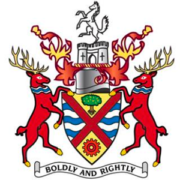Adoption of the Definition
Widespread adoption of the International Definition of Antisemitism is critical to combat antisemitism because it provides a widely-accepted measure to identify it. Organisations that do not have such a measure are incapable of recognising and tackling anti-Jewish racism when it arises.
There are still numerous local authorities that have not adopted the Definition in full with the examples.
We recommend that local authorities that have yet to do so should adopt the Definition in full with the examples and incorporate the Definition into their respective codes of conduct.
Adoption of the Definition in full
A significant number of local authorities have adopted the Definition but do not appear to have adopted the examples.
Campaign Against Antisemitism considers the examples to be integral to the Definition, without which an adoption is not complete.
In a statement on 7th August 2018, the International Holocaust Remembrance Alliance reiterated the integrality of the examples to the Definition.
The examples represent a non-exhaustive list of illustrations of manifestations of contemporary antisemitism that accompany and form part of the Definition and are pivotal to the Definition’s significance and utility. The impact of the Definition is considerably diminished if the examples are not expressly adopted by institutions and used as a reference when determining cases of antisemitism.
Some local authorities have not adopted the examples deliberately, whether for unacceptable partisan reasons or because of concerns – long debunked – about their meaning. In most cases, however, those local authorities that have not adopted the examples have done so out of confusion or error, or have simply not expressly adopted them even if they had intended to do so.
We recommend that those local authorities that have not adopted the examples pass new motions to adopt the Definition in full with the accompanying examples.
Applying the Definition
The Definition itself is the starting point for combating antisemitism, because it assists institutions in identifying the phenomenon. However, while adoption alone raises awareness of antisemitism and sends important signals, it is imperative that local authorities actually go on to apply the Definition when investigating and judging antisemitism complaints. To this end, the Definition must be referenced in the codes of conduct for councillors and staff and be applied in disciplinary cases relating to antisemitism.
We recommend that local authorities incorporate the Definition into their respective codes of conduct for councillors and for employees and apply the Definition when judging complaints of antisemitism made against councillors or employees.
Sanctions for misconduct by councillors
Under the Localism Act 2011, the sanctions available to English local authorities against councillors who engage in misconduct are widely regarded as limited and weak. Censure of a councillor is an insufficient sanction in many cases, while criminal prosecution is only available in cases of criminal conduct, a threshold that antisemitic or racist conduct often will not reach, and there are few other options between censure and criminal prosecution.
While there are benefits to devolving authority to regulate councillors’ conduct to local authorities across England, there are also drawbacks, as local authorities may differ in their approach and sanctions with regard to the same misconduct. While adoption of the Definition and reference to it in disciplinary processes will contribute to uniformity across local authorities, local authorities in England still retain discretion in investigation, judgment and sanction.
Notably, this is not the case in the other nations, where disciplinary matters are examined at a national level.
While a report by the Committee on Standards in Public Life in 2019 recommended the introduction of suspension as a sanction for councillors who breach codes of conduct, this is likely to apply only in extreme cases. Meanwhile, any adoption of a code of conduct in relation to use of social media – the forum where a considerable proportion of misconduct takes place – is likely only to be voluntary.
We recommend further review at the national level of the success of the devolution of disciplinary powers to local authorities in England over the past several years, in particular with reference to antisemitism, and consider options for enhancing uniformity in the regulation of councillors’ conduct across England.
We recommend that the Government enact legislation giving local authorities in England enhanced powers to sanction councillors, including suspension, so that their powers are equivalent to those of local authorities in Northern Ireland, Scotland and Wales.
Context of misconduct
A recurring complication in cases of antisemitic conduct by councillors is establishing whether the councillor was acting in an official capacity or other than in an official capacity when the misconduct took place, as the codes of conduct, particularly in England, generally only apply when councillors act in their role as councillors and not in their private capacity.
In the age of social media, this distinction is more significant than ever, as distinguishing between conduct in one’s official capacity and conduct other than in one’s official capacity can be both difficult and pivotal, as it may determine whether a complaint is considered at all.
We recommend that, for the purposes of codes of conduct, the distinction between councillors acting in an official capacity or other than in an official capacity be eliminated.
The role of political parties
While the available sanctions that can be imposed on councillors who breach their local authority’s code of conduct remains limited, it is important that local political parties assume responsibility for augmenting the penalties issued by local authorities for racist misconduct by councillors.
Withdrawal of the party whip pending an investigation is an important tool, but antisemitism training from reputable specialist organisations, demotion or a permanent withdrawal of the whip are among the responses and sanctions that parties should consider when a councillor engages in antisemitic speech or conduct.
We recommend that local political parties take responsibility for regulating the conduct of their councillors when they act in an official capacity and also when they do not, inasmuch as such conduct involves antisemitic speech or acts. Parties should make reference to the Definition in investigating complaints of antisemitism that are made against councillors (and local party members) and should make use of the sanctions available to them.
Training
Antisemitism is a complex and unique phenomenon that manifests in a wide variety of forms and is distinct from other forms of racism.
Accordingly, Campaign Against Antisemitism believes that antisemitism requires specific training which cannot be delivered simply as part of wider equality and diversity training.
We recommend that local authorities provide specific antisemitism training to councillors and staff, especially those tasked with counter- extremism and anti-racism work.
Raising awareness
We hope that all local authorities and local political parties will make every effort to raise awareness of antisemitism and its manifestations in their communities and work towards good community relations and tolerance in their local areas.













































































































































































































































































































































































































